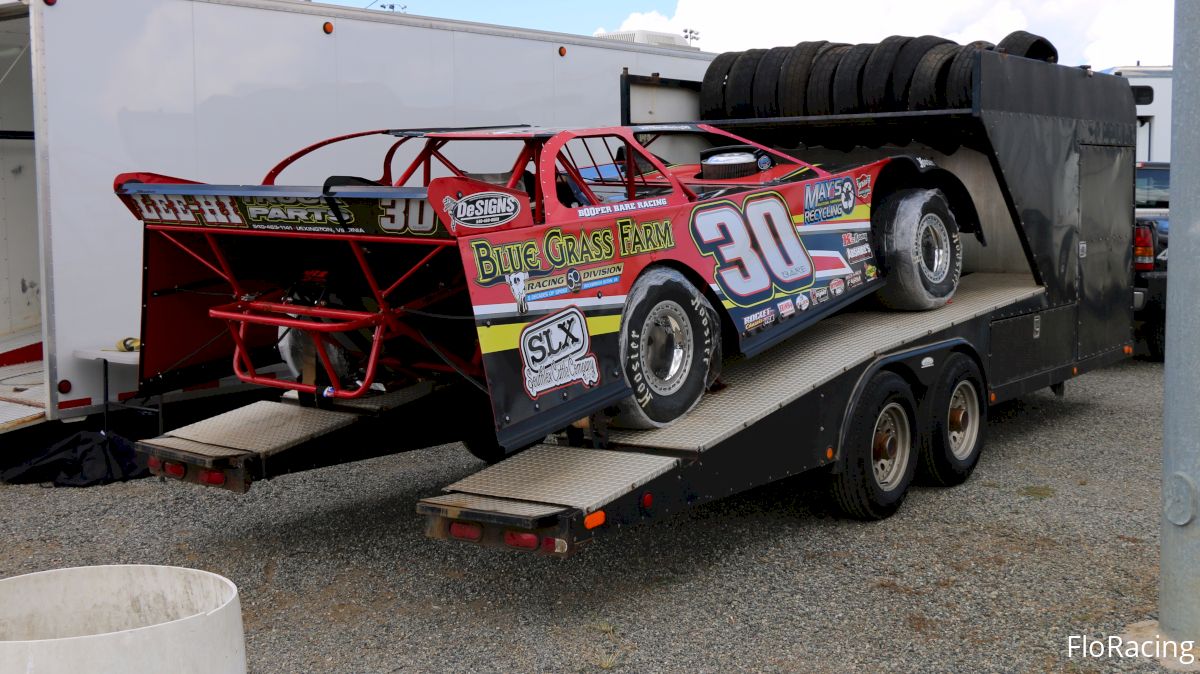What Should Drivers Make?
What Should Drivers Make?
Most dirt track racers live on a shoestring and a prayer, so their fans’ ire was raised this week when a NASCAR driver suggested he wasn’t be paid enough.

By Jonathon Masters
Previously, we discussed how much most full-time dirt drivers get paid. The topic of driver compensation was brought to the forefront this past week when individuals from NASCAR shared their thoughts that that Cup drivers were not paid enough and should have salaries on par with NFL and NBA players.
This did not sit well with many dirt racing fans or drivers, including Matt Henderson.
Lol yea and those wreck nights we drive home with a PB&J sandwich. Ain't no plane when we are driving our truck and trailers home.
— Matt Henderson (@MHenderson17) October 9, 2017
The Terror Race Cars driver voiced the basic sentiment of many racers out there. A lot of a drivers’ duties in other disciplines, such as dirt racing, go far beyond what is seen on the track. Drivers are traveling with their teams full-time and working on their own cars just as much or more than crew members. The drivers are there for every long truck ride, every late-night motor swap, and every preseason tire mounting marathon.
Which brings us to the question: What should a driver be paid? As with everything in the world, it depends on the situation. The structure discussed in the aforementioned post is a very stable way of doing things for the paid-driver scenario. If you are a national driver for a team owned by somebody else, then 30-35 percent of winnings with a 5 percent bonus for wins is more than fair. After all, the owner is picking up the tab and paying crew members and that’s not cheap.
And this should not only apply to dirt track racers.
The same basic pay structure should apply to NASCAR and any other division as well. If NASCAR wants a solution to falling fan interest, attendance, and TV ratings — then add the drama of these guys needing to win back into the equation and see where it takes you.
Team owners take note, because this all starts with you. Try an experiment: Take one team out of your roster and make this the scenario. The drivers who aren’t racing as hard as they can for the win will not want anything to do with those rides. But drivers that love racing and are going to race as hard as they can every weekend.
A driver should make what he earns. Racing is a unique sport that was built on competing for the prize money put up by tracks. No race team owns a “home field” or is a function of a tourism board in a major city. The stick-and-ball business model simply does not fit our sport.
It is that dynamic that built an industry with more independent businessmen than any other sport. It’s a mom-and-pop, small-business, cottage-industry machine. Racing contributes to a vast economy and creates opportunities for anyone interested and intrepid enough to participate. One does not have to run a five-minute mile, throw a ball through a hoop, or even be a good driver to be a part of it.
One could buy a shock dyno and some tools today and build shocks for a top-level team. Anyone can be a part of racing — and that makes auto racing unique to other sports.
You could win the lottery and be a full-time World of Outlaw driver by next month. But, that doesn’t give you the right to demand money from the sanctioning body or another owner. That is what makes the idea of driver-demanded salaries a non-starter. If you want to make money, you have to earn it the same way a salesperson earns it with commissions or a private contractor earns it by finishing a drywall job. In this way, the drivers, team owners, track officials, and sanctioning bodies are connected to their constituency.
Racing is built on the idea of going out there and earning your prize. It’s time to remind top-level asphalt drivers of that. With the new franchise system, NASCAR no longer announces prize money, but a lot of money is still exchanging hands.
In 2015 — the last time NASCAR announced winnings — the winner of the Daytona 500 won $1.6 million. If the winning team paid their driver 30 percent plus a 5 percent bonus for the win it would be $560,000. The same race pays $262,000 for last. That’s $75,000 for the driver at 30 percent.
Any dirt racers out there want to complain about that?
- Jonathon Masters has a lifelong connection with dirt racing. His family has owned and operated MasterSbilt Race Cars manufacturing dirt late model chassis for 35 years. He attended college in North Carolina for motor sports management and has written for various industry publications. Jonathon was an account executive at The International Motorsports Industry Show, founder of the Heartland Auto Racing Show, and has been a racing industry professional for over a decade.
Weekly Columns by Jonathon Masters
What Do Drivers Make?
Aggressive Driving Equals Big Wins
What the World 100 Will Cost You
Getting Beyond The Hype
How Dirt Track Racing Gets Sponsorship Wrong, Part 1: Tracks & Series | Part 2: Drivers & Teams
Drivers Weigh In About The Scales